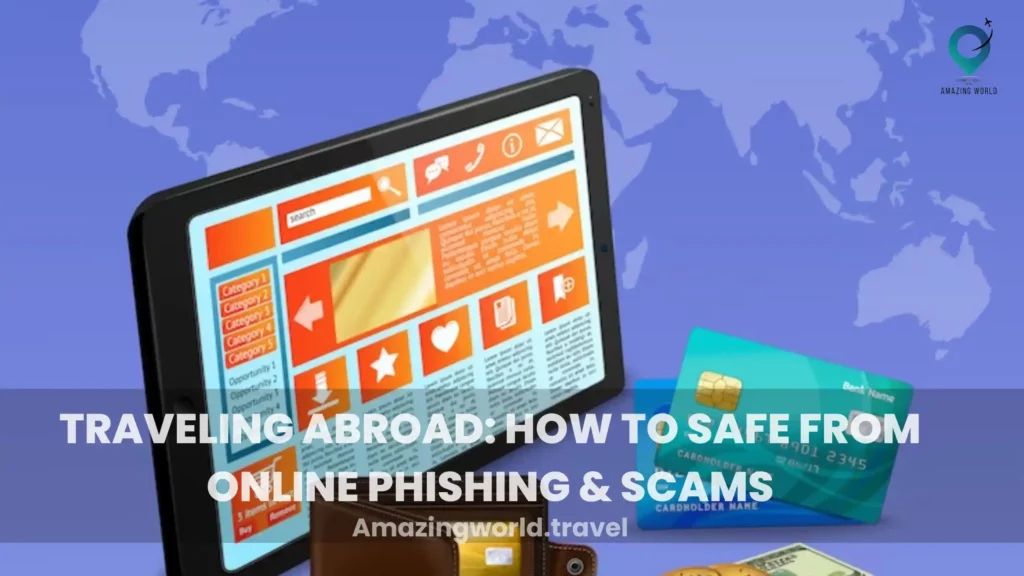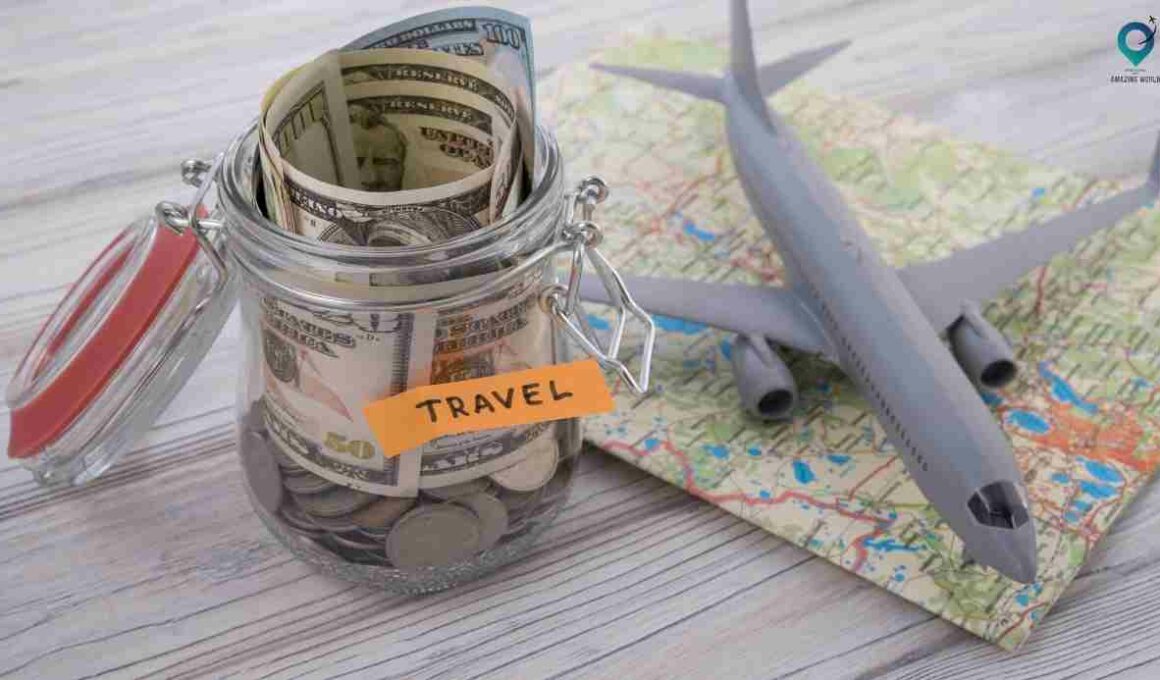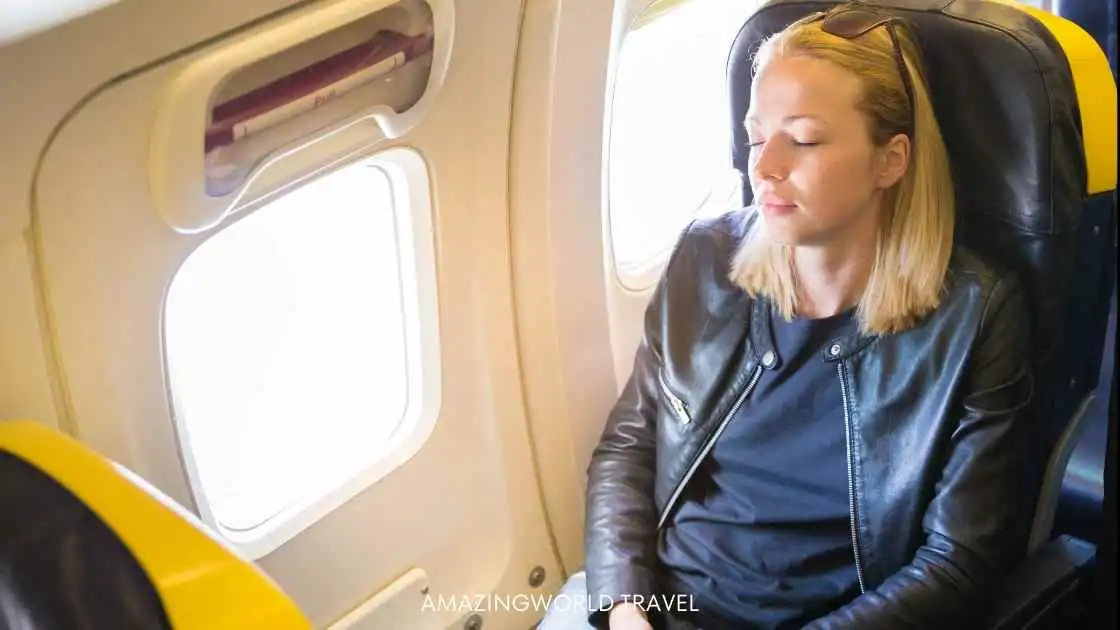Traveling Smart: 10 ways to Travel on a Shoestring Budget

Are you someone passionate about exploring the world but hesitant due to financial constraints? Fear not, for the allure of travel need not be dampened by a tight budget. Traveling smartly on a shoestring budget is an art that can be mastered with the right approach.
This guide unveils ten savvy ways to embark on thrilling adventures without breaking the bank. Delve into these budget-friendly strategies and unlock the secrets to traversing the globe economically, ensuring your wanderlust dreams become a reality without compromising on experience or enjoyment.
Discover how to navigate the realms of travel intelligently while maximizing every penny spent, opening doors to remarkable adventures on a budget-friendly voyage.
“If you are looking for the best hotel and flight deals for your next vacation, then we recommend booking your bundled flight and hotel through hotwire.com.“
What is a Shoestring Budget?
In the context of travel or general finances, a shoestring budget refers to a very tight or limited budget. It means having minimal financial resources or funds available for a particular purpose, such as traveling, living expenses, or managing a project. The term “shoestring” metaphorically implies a thin and minimal amount of money, akin to the thinness of an actual shoelace or string.
When someone mentions they are operating on a shoestring budget, it typically suggests that they have to be extremely cautious and frugal with their spending, making every effort to stretch their limited funds as much as possible to meet their needs or achieve their goals.
This approach often involves careful planning, prioritizing essentials, seeking cost-effective options, and being resourceful to make the most out of a small amount of money available.
1. Leveraging Work Abroad Opportunities

Leveraging work abroad opportunities open doors to unique experiences and a chance to sustain travel while earning.
Working abroad presents a myriad of possibilities for individuals seeking to immerse themselves in different cultures while supplementing their finances. Opportunities such as teaching English, seasonal work, or freelance gigs offer a means to fund travel while gaining invaluable experiences. Many countries provide programs like Work and Travel initiatives, facilitating temporary work for international visitors.
Understanding the visa requirements for working abroad is crucial. Each country has specific regulations governing foreign workers, necessitating thorough research beforehand. Identifying nations with more flexible visa policies can ease the process for those seeking temporary work.
Moreover, the rise of remote work has ushered in a digital nomad lifestyle, enabling individuals to work from anywhere in the world. Online platforms and job boards cater specifically to remote job seekers, allowing them to maintain a steady income while exploring different destinations.
Engaging in cultural exchange programs and volunteering can offer accommodation and meals in exchange for work. Organizations and NGOs worldwide provide opportunities for volunteers, contributing to community development while minimizing accommodation costs.
Managing finances while working abroad involves meticulous budgeting. It’s essential to plan finances considering income, expenses, and savings, ensuring financial stability during travel. Exploring options like local banking and currency exchange rates aids in efficient money management.
Working abroad might pose challenges such as language barriers, cultural differences, or adapting to new work environments. However, embracing these challenges contributes to personal growth and enriches the overall experience.
Real-life testimonials and success stories from individuals who’ve leveraged work opportunities abroad can provide inspiration and insights into making the most of such experiences.
2. Optimizing Hostel Stays for Budget Travel

Hostels offer cost-effective accommodations while fostering social connections among travelers.
When aiming for budget travel, choosing hostels over hotels significantly reduces accommodation expenses. Optimizing hostel stays involves several strategies:
- Research and Booking: Conduct thorough research to find reputable hostels with positive reviews and amenities that match your needs. Booking in advance often secures better rates.
- Shared Accommodation: Opting for shared dormitories or rooms minimizes costs further compared to private rooms. Most hostels offer lockers or storage for personal belongings.
- Common Areas and Facilities: Utilize common areas and facilities provided by hostels, such as kitchens, lounges, and communal spaces. This allows for socializing with other travelers and preparing affordable meals.
- Hostel Events and Tours: Many hostels organize events, tours, or group activities, providing opportunities to explore the area inexpensively while making new friends.
- Membership Cards and Discounts: Consider hostel membership cards or loyalty programs offering discounts or additional perks for frequent travelers.
Hostels foster a vibrant community atmosphere, making it ideal for solo travelers or those seeking budget-friendly accommodations while exploring new destinations.
3. Unlocking Free Accommodation: House and Pet Sitting

House and pet sitting offer a unique opportunity to stay for free while caring for someone else’s property or pets.
House and pet sitting present a win-win situation where homeowners receive reliable caretakers, while sitters enjoy complimentary accommodation. Unlocking free accommodation through house and pet sitting involves several steps:
- Registering on Platforms: Sign up on reputable house and pet sitting platforms, creating a detailed profile highlighting experience, reliability, and references.
- Applying for Assignments: Browse listings and apply for assignments matching preferences and availability. Crafting personalized applications tailored to homeowners’ needs increases the chances of selection.
- Building Trust and Communication: Establish trust through transparent communication with homeowners. Video calls or interviews beforehand help both parties become comfortable with the arrangement.
- Understanding Responsibilities: Clarify responsibilities, routines, and pet care instructions before accepting an assignment. Respecting the homeowner’s property and adhering to their guidelines is crucial.
- Maintaining Flexibility: Being flexible with travel dates and locations increases the likelihood of securing desirable house and pet sitting opportunities.
4. Smart Dining: Cooking Your Own Meals and Eating Locally

Smart dining involves strategic meal planning, cooking your own meals, and exploring local cuisines to save money while traveling.
- Strategic Meal Planning: Plan meals in advance to reduce dining expenses. Make a list of essential groceries needed for simple, nutritious meals.
- Cooking Your Own Meals: Utilize hostel or accommodation kitchens to cook meals instead of eating out. Prepare simple dishes using local ingredients to experience the culture authentically.
- Budget-Friendly Ingredients: Opt for affordable ingredients available in local markets or grocery stores. Experimenting with local produce often yields delicious and inexpensive meals.
- Meal Sharing or Potluck Dinners: Collaborate with fellow travelers in hostels or accommodations to organize potluck dinners or meal-sharing events, fostering community while saving money.
- Eating Locally: Explore local eateries, street food vendors, or markets offering inexpensive yet authentic meals. Engaging in local food experiences can be both economical and culturally enriching.
Smart dining not only helps in managing expenses but also allows travelers to immerse themselves in the local culinary scene, savoring authentic flavors without breaking the budget.
5. Maximizing Credit Card Benefits for Free Flights and Hotel Stays

Leveraging credit card rewards and perks can lead to free flights and hotel stays, significantly reducing travel expenses.
- Researching Reward Programs: Explore credit cards offering travel rewards, such as points or miles for every purchase made.
- Signup Bonuses and Offers: Take advantage of signup bonuses and introductory offers provided by credit card companies, often granting a substantial number of reward points or miles.
- Strategic Spending: Use credit cards for everyday expenses, paying bills, and larger purchases to accumulate more rewards.
- Redeeming Points or Miles: Understand the redemption options available through credit card reward programs. Redeem accumulated points or miles for flights, hotel bookings, or upgrades.
- Travel-Focused Credit Cards: Consider specialized travel credit cards offering additional benefits like travel insurance, lounge access, or waived foreign transaction fees.
Maximizing credit card benefits requires responsible financial management and timely payments while capitalizing on reward programs to unlock significant savings on travel expenses.
6. Navigating Top Travel Deals and Exclusive Offers

Finding and navigating top travel deals and exclusive offers can help travelers access cost-effective options and discounts for various travel-related expenses.
- Utilizing Travel Aggregator Websites: Explore travel aggregator websites and platforms that compile and compare deals from airlines, hotels, and tour operators.
- Subscribing to Newsletters and Alerts: Sign up for newsletters or alerts from travel websites, airlines, and hotels to receive notifications about exclusive deals and limited-time offers.
- Flexibility in Travel Dates: Remain flexible with travel dates to take advantage of off-peak seasons or last-minute deals offering significant savings.
- Loyalty Programs and Memberships: Join loyalty programs offered by airlines, hotels, or travel agencies to accumulate points, receive discounts, or access member-exclusive deals.
- Comparison Shopping and Negotiation: Compare prices across different platforms and don’t hesitate to negotiate prices, especially for accommodations or tour packages.
7. Navigating Travel with Rail Passes and City Tourism Cards
Rail passes and city tourism cards offer cost-effective travel options for exploring various destinations.
- Rail Passes: Consider purchasing rail passes or cards offering unlimited travel within a specified region or country. These passes often provide flexibility and significant savings for frequent train travel.
- Benefits of Rail Passes: Understand the coverage, inclusions, and additional perks provided by rail passes, such as discounts on attractions or free admission to certain sites.
- City Tourism Cards: Many cities offer tourism cards providing free or discounted access to public transportation and attractions. These cards often include perks like guided tours or museum entries.
- Research and Comparison: Research different rail pass options and city tourism cards available at destinations. Compare prices, coverage, and benefits to choose the most suitable option based on planned activities and travel routes.
Navigating travel with rail passes and city tourism cards allows travelers to explore multiple locations conveniently while enjoying cost-effective transportation and access to attractions.
8. Embracing Free Tours and Discount Hunting Strategies

Utilizing free tours and discount strategies is an excellent way to explore destinations on a budget.
- Free Walking Tours: Many cities offer free walking tours led by local guides, providing insights into historical landmarks, culture, and hidden gems without a fixed cost. Consider tipping the guide as a gesture of appreciation.
- Online Platforms and Apps: Explore online platforms or mobile apps offering discount codes, vouchers, or deals for attractions, tours, restaurants, or activities at various destinations.
- Off-peak Visits and Special Promotions: Take advantage of off-peak seasons or special promotions offered by attractions, museums, or entertainment venues, providing discounted entry fees or special packages.
- Group Discounts or Bundled Offers: Look for group discounts or bundled offers when traveling with companions or family members. Many attractions offer reduced rates for group bookings.
Embracing free tours and discount hunting strategies allows travelers to experience destinations affordably while enjoying a range of activities and attractions.
9. Exploring Secondary Destinations for Budget-Friendly Travel

Exploring secondary destinations offers unique experiences and cost savings compared to popular tourist hubs.
- Lesser-Known Destinations: Research and consider visiting lesser-known or secondary destinations that are off the beaten path. These places often offer authentic cultural experiences and more affordable accommodations.
- Lower Costs: Secondary destinations typically have lower accommodation prices, dining costs, and activity fees compared to major tourist hotspots.
- Local Culture and Authentic Experiences: Exploring secondary destinations allows travelers to immerse themselves in local culture, interact with residents, and experience traditions and customs firsthand.
- Transportation and Accessibility: Consider transportation options and accessibility when planning visits to secondary destinations, ensuring ease of travel and exploring nearby attractions.
Exploring secondary destinations provides an opportunity for budget-conscious travelers to discover hidden gems and unique experiences while avoiding crowds and high expenses.
10. Choosing Accommodations Wisely: Hotel vs. Homestay vs. Couchsurfing
Making informed choices between different accommodation options helps in managing travel expenses efficiently.
- Hotels: Evaluate hotel options based on location, amenities, and pricing. Consider booking directly or through third-party platforms to secure the best rates or take advantage of loyalty programs.
- Homestays: Explore homestay options for a more immersive cultural experience. Homestays often offer affordable accommodation while allowing interaction with locals.
- Couchsurfing: Consider Couchsurfing as an option for free accommodation, connecting with hosts who offer a spare room or couch for travelers. It’s essential to review profiles, references, and safety measures before choosing this option.
- Budget vs. Experience: Balance budget constraints with the experience desired during travel. Each accommodation type offers a unique experience, catering to different preferences and travel styles.
Conclusion
the world is a vast tapestry of experiences waiting to be explored, and financial limitations should never be a barrier to your wanderlust. By implementing these ten savvy strategies for traveling on a shoestring budget, you’ve learned how to navigate the intricacies of budget-friendly travel without sacrificing quality or enjoyment.
Remember, smart planning, flexibility, and resourcefulness are your greatest companions on this journey. From leveraging work abroad opportunities to embracing free tours, exploring secondary destinations, and making informed accommodation choices, each tip contributes to a richer travel experience while keeping costs in check.
Traveling on a shoestring budget isn’t merely about pinching pennies; it’s about unlocking a world of possibilities, fostering cultural connections, and creating lasting memories without financial burdens. So, whether you’re trekking through hidden gems or savoring local cuisines, the essence of your travels remains in the moments cherished and the stories woven into your adventures.
As you bid adieu to this guide, let these budget-savvy techniques be your compass for future explorations. With a blend of prudent choices and an adventurous spirit, the world becomes your oyster, ready to be discovered on your terms, no matter the size of your budget.
Happy travels!
How much did you like Our detailed The Ultimate Guide to Traveling the World on a Shoestring Budget? Review Also, please share these Blogs with your friends on social media.
Recommended
- 30+ Best Atlantic Beaches
- London Travel Guide
- Airplane Travel Tips
- Paris Travel Tips
- How to travel the world on a budget of $1,000

Meet David Hoper, a passionate travel Blog writer with 7+ years of experience in travel content. Through his exemplary storytelling and engaging narratives, he shares his experiences and brings destinations to life. With a keen eye for detail and a love for exploration, he has cultivated a diverse portfolio of travel blogs that inspire and inform readers worldwide.








